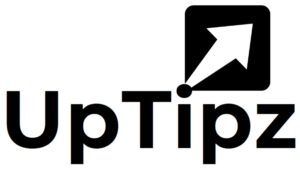In today’s dynamic financial landscape, effective personal finance management is more crucial than ever. With economic fluctuations, evolving investment opportunities, and changing tax laws, staying informed and proactive can significantly impact your financial well-being. This comprehensive guide presents five advanced strategies to optimize your personal finances in 2024, providing actionable insights and expert recommendations.
1. Leverage Advanced Budgeting Tools and Techniques
Traditional budgeting methods have evolved with technology, offering more sophisticated tools to track and manage expenses.
Utilizing AI-Powered Financial Apps
Modern applications like Quicken Simplifi and Rocket Money employ artificial intelligence to analyze spending patterns, predict future expenses, and offer personalized financial advice. These platforms provide real-time insights, helping you make informed decisions.
Implementing the Zero-Based Budgeting Method
Zero-based budgeting involves allocating every dollar to a specific category, ensuring that your income minus expenses equals zero. This method promotes intentional spending and highlights unnecessary expenditures.
Action Steps:
-
Select a Financial App: Choose an app that aligns with your financial goals and integrates seamlessly with your accounts.
-
Set Up Your Budget: Input your income and categorize expenses, ensuring every dollar is assigned a purpose.
-
Regularly Review and Adjust: Monitor your spending and adjust categories as needed to reflect changes in your financial situation.
2. Strengthen Your Emergency Fund Amid Economic Uncertainties
The past years have underscored the importance of having a robust emergency fund.
Assessing the Adequacy of Your Safety Net
Financial experts recommend having three to six months’ worth of living expenses saved. Given recent economic volatility, aiming for the higher end of this range can provide added security.
High-Yield Savings Accounts: Maximizing Returns
With interest rates fluctuating, it’s essential to find savings accounts that offer competitive yields. High-yield savings accounts and certificates of deposit (CDs) have provided elevated rates, rewarding savers with strong returns.
Action Steps:
-
Calculate Your Monthly Expenses: Include essentials like housing, food, utilities, and insurance.
-
Set a Savings Goal: Determine a target amount covering at least six months of expenses.
-
Automate Savings: Set up automatic transfers to your high-yield savings account to build your fund consistently.
3. Diversify Investments with Emerging Financial Technologies
Investment strategies are continually evolving with technological advancements.
Exploring Fintech Innovations
Platforms like Autopilot App allow users to automate their investment portfolios by mimicking successful traders’ strategies. This approach democratizes access to sophisticated investment techniques.
Incorporating ESG Investments
Environmental, Social, and Governance (ESG) investing focuses on companies committed to sustainable and ethical practices. This strategy aligns financial goals with personal values and has gained traction among investors.
Action Steps:
-
Research Fintech Platforms: Evaluate platforms offering automated and AI-driven investment options.
-
Assess ESG Funds: Investigate ESG mutual funds or ETFs that align with your values and financial objectives.
-
Consult a Financial Advisor: Seek professional advice to tailor an investment strategy suited to your risk tolerance and goals.
4. Implement Strategic Debt Management Plans
Effective debt management is pivotal in achieving financial stability.
Prioritizing High-Interest Debts
Focusing on paying down high-interest debts, such as credit card balances, can save significant amounts in interest payments over time.
Exploring Debt Consolidation Options
Consolidating multiple debts into a single loan with a lower interest rate can simplify payments and reduce overall interest. However, it’s crucial to understand the terms and potential risks involved.
Action Steps:
-
List All Debts: Document balances, interest rates, and minimum payments for each debt.
-
Choose a Repayment Strategy: Consider methods like the avalanche (paying off highest interest debts first) or snowball (paying off smallest debts first) approach.
-
Seek Professional Guidance: A financial advisor can provide personalized strategies and may suggest reputable debt consolidation services.
5. Optimize Tax Strategies with Proactive Planning
Staying informed about tax laws and implementing strategic planning can lead to substantial savings.
Maximizing Retirement Account Contributions
Contributing to retirement accounts like 401(k)s or IRAs can offer tax advantages. For 2024, ensure you maximize your contributions to benefit from potential deductions.
Utilizing Health Savings Accounts (HSAs)
HSAs provide triple tax benefits: contributions are tax-deductible, growth is tax-free, and withdrawals for qualified medical expenses are tax-exempt.
Action Steps:
-
Stay Updated on Tax Law Changes: Regularly review IRS updates or consult a tax professional to understand new tax breaks and credits.
-
Plan for Quarterly Taxes: If you’re self-employed or have additional income sources, ensure you’re making estimated tax payments to avoid penalties.
-
Keep Detailed Records: Maintain organized documentation of all financial transactions to streamline the tax filing process.
Conclusion: Proactive Financial Management for a Prosperous 2024
Achieving financial success in 2024 requires a proactive and informed approach. By leveraging advanced budgeting tools, strengthening your emergency fund, diversifying investments, implementing strategic debt management, and optimizing tax strategies, you can navigate the complexities of the modern financial landscape with confidence.
We invite you to share your experiences and strategies in the comments below.
Let’s foster a community of learning and support as we strive for financial! 🙂


2 Comments